

Donald Trump’s victory in the US presidential election has helped push the price of Bitcoin to a series of record highs.
1. The mysterious creator of Bitcoin
Despite its enormous profile, no-one actually knows for sure who invented Bitcoin. The idea for it was posted on internet forums in 2008 by someone calling themselves Satoshi Nakamoto.
They explained how a peer-to-peer digital cash system could work to enable people to send virtual coins over the internet, just as easily as sending an email.
Satoshi created a complex computer system that would process transactions and create new coins using a huge network of self-appointed volunteers around the world who used special software and powerful computers.
But he – or they – never revealed their identity, and the world has never worked it out.
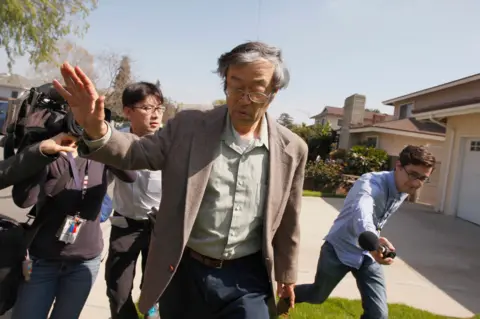
In 2014, Japanese-American man Dorian Nakamoto was pursued by reporters who thought he was the elusive Bitcoin creator, but it proved to be false lead caused by some mistranslated information.
Australian computer scientist Craig Wright said it was him in 2016 – but after years of legal battles, a High Court judge concluded he was not Satoshi.
Earlier this year, a Canadian Bitcoin expert called Peter Todd strongly denied being Satoshi, while in London this month a British man, Stephen Mollah, claimed he was – but no-one believed him.
2. Making history with pizza
Bitcoin now underpins a two trillion-dollar cryptocurrency industry – but the first recorded transaction using it was the purchase of pizza.
On 22 May 2010, Lazlo Hanyecz, offered $41 worth of Bitcoin on a crypto forum in return for two pizzas.
A 19-year-old student obliged and the day went down in history for fans of the currency as #BitcoinPizza day.
A source of memes for those in crypto community, it also showcased the power of Bitcoin – an internet money that could genuinely buy items online.
Criminals must have been watching too, because within a year the first darknet marketplace was launched selling drugs and other illegal goods in exchange for Bitcoin.
The deal looks pretty bad for Lazlo now too. If he had held onto those coins they would now be worth hundreds of millions of dollars!
3. Becoming legal tender
In September 2021, President Nayib Bukele of El Salvador, central America, made Bitcoin legal tender.
Hairdressers, supermarkets and other shops had to accept Bitcoin by law, alongside its main currency, the US dollar.
Many Bitcoin enthusiasts and reporters visited the area, briefly boosting tourism to the country.
While President Bukele hoped the move would increase investment in his country and cut costs for citizens exchanging money, it did not become as popular as he hoped.
He is still hoping it will take off but for now the US dollar still remains king in the country.
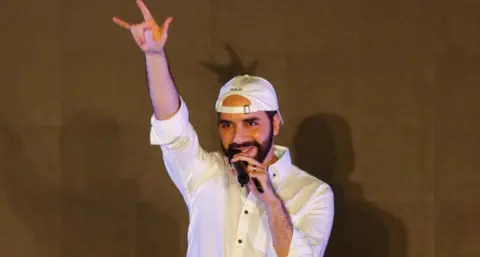 Reuters
ReutersAs well as the huge amount of public money President Bukele spent on trying to make people embrace Bitcoin he also, controversially, bought more than 6,000 bitcoins over the past few years.
The president spent at least $120m buying up bitcoins at various prices in the hope of making a profit for his cash-strapped country.
It started to look good for him in December 2023 when, for the first time, his stash skyrocketed in value.
A website built by Dutch software engineer Elias Zerrouq is tracking the country’s Bitcoin holdings and currently estimates that the coins have risen 98% in value.
4. Kazakhstan’s crypto boom and bust
In 2021, Kazakhstan became a hotspot for Bitcoin mining – the process of crunching through the complex calculations that underpin crypto transactions.
These days it takes warehouses full of the latest computers running all day and all night, but the reward is brand new bitcoins for those companies that take part.
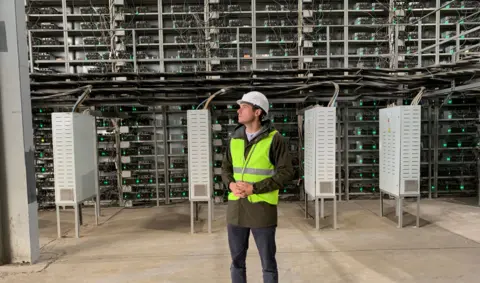
Warehouses of computers require lots of power – and many businesses moved to Kazakhstan where electricity was abundant thanks to huge coal reserves.
At first the government welcomed them with open arms as they brought investment.
But too many miners arrived and put huge strain on the electricity grid, putting the country at risk of blackouts.
Within a year, Kazakhstan’s Bitcoin mining industry went from boom to bust as the government imposed restrictions and increased taxes to curb the growth.
Around the world it is estimated that the Bitcoin network uses as much electricity as a small country, raising concerns about its environmental impact.
5. Bitcoins in the rubbish dump
Imagine having a crypto wallet worth more than $100m (£78m) – and then accidentally throwing away a hard drive containing the login details.
That’s what James Howells, from south Wales, says happened to him
The very nature of crypto means that recovery is not as easy as resetting your password. With no banks involved – there is no customer support helpline.
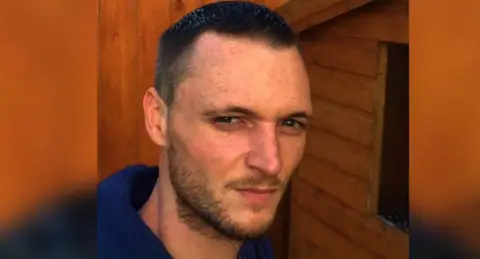 James Howells
James HowellsUnfortunately for him, his local council in Newport refused to let him access the landfill site where he says the device ended up – even after he offered to donate 25% of his Bitcoin stash to local charities if they let him.
He told the BBC: “It was a penny dropping moment and it was a sinking feeling.”
6. Crypto King fraudster
No one has lost as much Bitcoin as former billionaire crypto mogul, Sam Bankman-Fried. The founder of the massive crypto firm FTX was nicknamed the Crypto King and loved by the community.
FTX was a cryptocurrency exchange that allowed people to trade normal money for cryptocurrencies like Bitcoin.
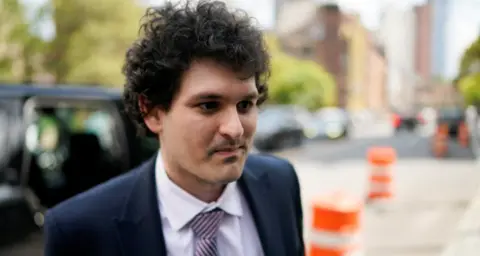 reuters
reutersHis empire was worth an estimated $32bn and he was flying high until everything came crashing down within days.
Journalists had discovered that Bankman-Fried’s company was financially shaky and had been illegally transferring FTX customer funds to prop up his other company, Alameda Research.
Just before his arrest at his luxury apartment complex in the Bahamas in December 2022 he spoke to reporters. He told the BBC: “I don’t think I committed fraud. I didn’t want any of this to happen. I was certainly not nearly as competent as I thought I was.”
After being extradited to the US he was found guilty of fraud and money laundering and was jailed for 25 years.
7. Investment bank boom
Despite all the turmoil, Bitcoin continues to attract attention from investors and big companies.
In fact, in January 2024, some of the biggest financial firms in the world added Bitcoin to their official asset lists as Spot Bitcoin ETFs. These are like stocks and shares, linked to the value of Bitcoin but you don’t have to personally own any.
Customers have been pouring billions into these brand new products. Companies including Blackrock, Fidelity and GrayScale, have also been buying up Bitcoins in their thousands, pushing up its value to record highs.
It is a huge milestone for crypto with some fans believing that Bitcoin is finally being taken as seriously as the mysterious Satoshi imagined.
Nonetheless, few would back against more wild moments as the Bitcoin story continues to unfold. – bbc.com